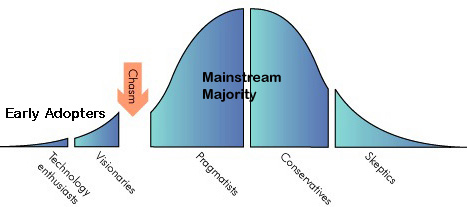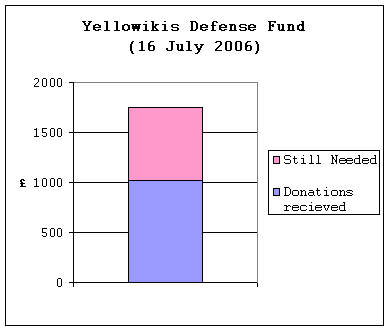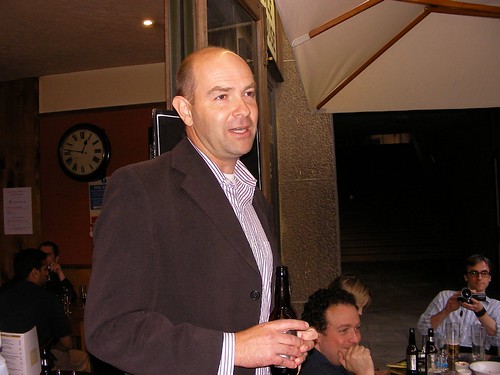Many web2.0 companies, blog networks, and even A-list bloggers are struggling to generate sales. But, being popular among bloggers is not generating the wished for revenues. Enthusiast bloggers are currently too few, notoriously fickle, and do not buy everything they sample.
The essentials to keep in mind for web2.0 ventures are three, in order of importance
- Provide value to the Client: a value proposition for the client – makes or saves him money
- Clients have money and an immediate need
- Be Unline the rest – better than the alternatives in some way
Early adopters, unfortunately, do not behave like Clients with Money – often on a sampling spree as they delight in trying free samples of many different products
Enthusiast blog readers and early adopters are essential for viral marketing, but are ultimately a means to an end, before maintream readers arrive.
Another much debated issue is uniqueness: Differentiation is essential for strong growth. But if demand outweighs supply, differentiation can be secondary. Many a life-style company makes a living, and provides employment for its staff, without significant differentiation.
A good breakdown of 11 Suggestions For Not Being a Dot-Bomb 2.0












